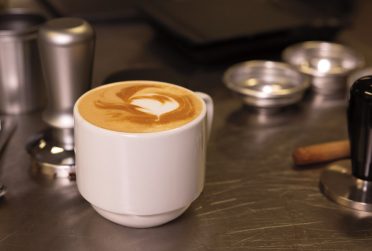One morning last fall, Dr. Erol Sozen’s upper-level Food Science class ran a unique taste test. The students placed plastic cups filled with pieces of chocolate chip cookies, banana bread, cinnamon muffins, and pancakes on stainless steel tables around the Food Laboratory in Turner Hall.
Then, his students invited about 50 of their peers in the Department of Family and Consumer Sciences to judge the products without telling them which treats were made with flour and which were concocted with a mixture of flour and the waste byproduct from the beer-making process: dried and ground brewer’s spent grain.
Appears InSozen knew the grain could be a healthy and sustainable alternative to flour; his students were testing whether it could be a palatable one. The results were in the mouth of the beholder, but Sozen liked the exercise because students learned how to experiment with ingredients and conduct research. “They’re doing serious research while enjoying the product,” said Sozen, an assistant professor of food, nutrition, and dietetics.
The class brought together both strands of Sozen’s research and teaching: food and drink within the hospitality industry. Sozen calls himself a foodie. However, craft brewing drew him into academia, and why he’s breaking new ground at Illinois State has everything to do with beverages. What links the two is his love for making things. Sozen began baking desserts for family friends in his early teens. He now makes wine and cheese, brews beer, and roasts his own coffee.
“I never thought that I was going to be an academician,” he said. “But I always knew that I was going to do something related to food because I like to eat, and I like to cook.”
He has been imparting his passion for food and drink to students since he arrived at Illinois State in 2020. Last year, Sozen and his students toured the world of coffee for an Honors Exploration course. “I love coffee,” he said. “An 18-year-old doesn’t know coffee; they just go to Starbucks. So, I said, ‘I will show them.’”
The class took a deep dive into how to grow, dry, and roast coffee. The students also presented on different coffee-growing regions. “Our students are very eager to learn. Even little assignments open their minds a bit,” Sozen said.
He believes students are thirsting for more. The five-week coffee class was so popular he held a second session, and this spring he began offering the University’s first Beverage Appreciation class. The new course is part of the Department of Family and Consumer Sciences’ food and beverage management program, which started last year.
“An 18-year-old doesn’t know coffee; they just go to Starbucks. So, I said, ‘I will show them.’”
—Erol Sozen
He is teaching students about the four main beverages in the hospitality industry: wine, beer, coffee, and tea. The students are learning about tea culture in China, England, India, and Turkey, and everything about wine from what soil is used to grow the grapes to how the cultivation and harvesting of them varies across the world.
For the beer section, the students won’t have to travel far. Bloomington-Normal is home to six craft breweries—five of which opened within the last seven years—in a state with 300 more and a country with 9,000-plus.
Sozen got into academia by researching the fast-growing $26 billion craft brewing industry during graduate school. “Most of the research that had been done was scientific—the microbiology, organic chemistry of the beer—but nobody was looking at it from a social science perspective,” he said.
Sozen said his class and the new program will prepare students for a variety of careers in the food and beverage industry. “After they graduate from here, they will have the fundamentals of wine and the other beverages if they want to get a certificate, say as a sommelier,” Sozen said. “When people think about wine, beer, or spirits, they always think either making it or serving it, but there are many other things that the students can do. They can choose their path.”


